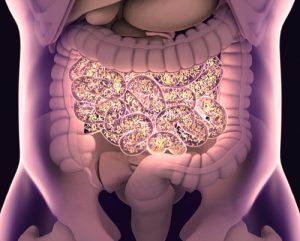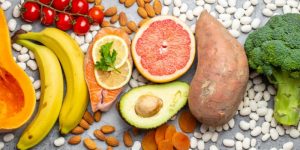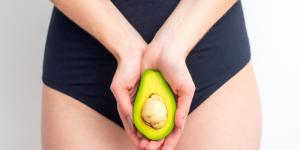Both probiotics and prebiotics may play a key role in fertility. This article explores the role of the gut microbiome in fertility health.
Gut Microbiome and its Functions
The intestinal bacterial environment is called the microbiome. No two people have exactly the same microbiome. Babies are born with basically no microbiome at all. Theirs develops gradually over the first few years of life. The body has other microbiomes as well, such as those of the skin, the vagina, the stomach and the mouth. However, the intestinal bacteria actually comprise about three-quarters of the body’s entire immune system function.
More specifically related to the fertility health of both sexes, the gut is in communication with the brain and helps regulate hormones. The gut microbiome has other important functions as well:
- The gut’s good bacteria work to keep pathogens in check
- The friendly bacteria manufacture vitamins like vitamin K and certain B vitamins
- The microbiome digests food, extracts nutrients and produces energy
- Beneficial gut bacteria help fight infections
- Friendly bacteria modulate gene function in gut cells and may help prevent colon cancer
The Microbiome and Fertility Health

- Thyroid problems
- Endometriosis
- Polycystic ovarian syndrome
- Pelvic inflammatory disease
- Autoimmune conditions
- Yeast overgrowth
Supporting the Microbiome
The intestinal flora depends on a proper diet to thrive. Refined sugar is particularly damaging to the gut’s friendly bacterial populations, causing changes to them that foster the development of inflammation. Yeast overgrowth can occur when the microbiomes of the gut and the vagina are out of balance. This can potentially disturb the vaginal pH or acid balance and allow harmful bacteria to migrate upwards into the uterus and fallopian tubes.
A healthy diet low in refined sugar and processed foods is best for both vaginal and gut health. Limit or avoid red meat and sugar. Eat whole, natural foods, such as raw and lightly steamed veggies, fruits, whole grains, nuts and seeds. Fish provides healthy fats the body needs to make cholesterol, which in turn is used to manufacture sex hormones.
Antibiotics decimate the friendly bacteria in the gut and can cause a wild imbalance. Avoid these drugs unless they are absolutely necessary.
How Prebiotics and Probiotics Can Help
Fertility health can be supported by a strong microbiome, which can benefit from prebiotics and probiotics. Many people don’t know the difference, but it’s not hard to understand. Prebiotics function as food for the probiotics, which are a number of friendly bacteria species that normally inhabit the healthy, balanced gut microbiome. Both are available in supplement form, but you can also get them from your diet. Prebiotics are actually special types of fiber that the probiotic bacteria like to eat. Foods rich in prebiotics include the following:
- Onions
- Garlic
- Asparagus
- Bananas
- Leeks
- Chicory root
- Oatmeal and wheat bran
- Dandelion greens
Probiotic Foods
Probiotic foods contain beneficial bacteria to boost friendly gut microbiome colonies. These foods include yogurt, kefir, kombucha, miso, tempeh, buttermilk, sour cream, aged cheeses, kimchi and sauerkraut. Kefir is a type of thin yogurt typically consumed as a drink. Miso and tempeh are both fermented soy products. Kimchi is the Korean version of sauerkraut, prepared by packing cabbage into earthen pots, which are then buried in the ground and allowed to ferment. Kombucha is a fizzy, sour-sweet fermented beverage made from tea. Look for it in natural foods markets. All probiotic foods are fermented in some way. That’s what gives them their rich supply of friendly bacteria.
It’s so easy to feed your fertility health with simple, delicious dietary changes. It’s a drug-free way to possibly improve your chances for a healthy pregnancy sooner than you might think!




